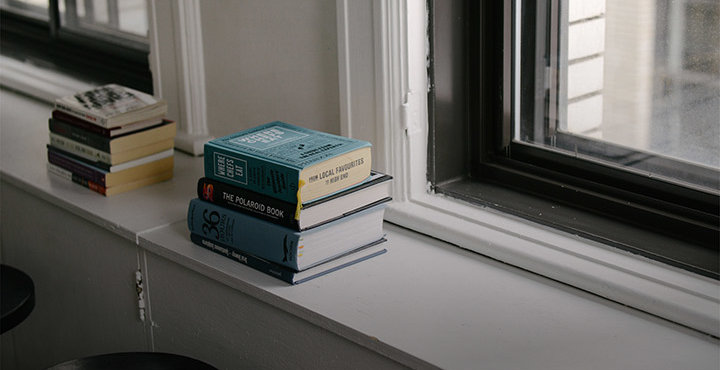Oh, Canada! With maple syrup, hockey pucks, and cuddly polar bears, I know you probably thought it couldn't get any better.
Being a Canuck, there are so many different things to love about Canada: from hockey to Timbits, we know how to do things right—and that includes writing. Canadian authors are awesome because whether they were born in Canada or abroad, they write in a way that is unique and relatable, providing diverse perspectives on different people, places, and things. Pretty cool, eh?
We recommend the authors listed below because we think they really showcase the amazing qualities of a true Canadian writer. Be it a poet, a children's author, or a literary historian, Canadian authors have a lot to offer readers.
So grab a cup of Red Rose tea and a Nanaimo bar, and get ready to read about 20 of the best Canadian authors. We hope this list introduces you to the finest in Canadian writing and gives you a greater appreciation for Canadian literature—and all other things Canadian!
1. Margaret Atwood
Although Margaret Atwood's writing style has changed over the years, it's still literal, vivid, and witty. Her stories have a Canadian approach—especially to wilderness—and she writes creative nonfiction and memoir, as well as historical, speculative, science, and dystopian fiction. Her writing has a feminist perspective, and her typical heroine is the modern urban woman. We recommend The Cat's Eye, an interesting take on identity, written as a series of flashbacks, which focuses on the socio-cultural elements of feminism and modern art in 1980s Canada.
2. Kathleen Margaret ("Kit") Pearson
Kit Pearson is a Canadian children's novelist who finds inspiration from the people and conversations she encounters. She looks to her own childhood when developing ideas about characters, settings, and storylines. Consequently, many of her novels are set in British Columbia, where she lived as a child. We recommend the Guests of War Trilogy, a story about the adventures of two English children who are sent to Canada for safety during the Blitz.
3. Yann Martel
Yann Martel is a fiction writer with a paradoxical style of writing. Although his writing is playful, his approach to his craft is methodical and planned, not spontaneous. His writing process is slow; when he has an idea, he does research . . . then comes up with another idea and does more research . . . and on and on. We recommend Life of Pi, the fantasy-adventure novel about an Indian boy who explores his spirituality while stranded at sea in a lifeboat with wild animals. The novel's main themes include the relativity of truth and the ideas that life is a story and that growth comes through adversity.
4. L. M. Montgomery
L. M. Montgomery was an author of Canadian children's literature. She was most famous for her book Anne of Green Gables, a story about an orphan girl who is mistakenly sent to a brother and sister who are looking to adopt a boy to help on their farm. The story looks at how Anne deals with her new situation and her new life. Since Montgomery's childhood was lonely, she would create imaginary worlds and friends, which ultimately sparked her creativity and gave her writing ideas. As such, her writing style differed from the modernist styles and themes of the time. Her short stories, novels, and poems are still beloved today.
5. Rohinton Mistry
Rohinton Mistry is an Indian-born Canadian author whose fiction has a precise writing style. He writes about the difficulties that Indian immigrants face when coming to Canada, and his characters are usually on a mission to find self-worth while dealing with difficult familial and social situations. His work is compassionate, transparent, natural, direct, and honest. Mistry writes historical fiction, postcolonial literature, realism, and Parsi literature. We recommend A Fine Balance, a novel about government power and the crackdowns on civil liberties in India between 1975 and 1984. The book will transport you to India and deepen your appreciation for family and friendship.
6. Alice Munro
Alice Munro is a famous short story writer. Her narratives feel private and intimate, and her characters tend to be in search of a revelation. The stories she writes are often social critiques that take place around Huron County, Ontario, where she lives. Her central themes are love and work and the balance between the two; her characters are unsophisticated yet relatable. We recommend Dear Life, a rich collection of short stories about social mores and gender roles.
7. Miriam Toews
As a novelist, Miriam Toews uses her own life as inspiration for her stories. Her writing style is direct and detailed; it exudes a sense of fearlessness. We recommend A Complicated Kindness, a coming-of-age novel in which the main character, a 16-year-old girl, rebels against her community while trying to come to terms with her family's collapse and finding her place in society.
8. Joseph Boyden
Joseph Boyden is a First Nations writer who pens historical fiction. His writing is vivid and contemporary, often portraying the strengths of marginalized groups within Canada. He is candid about his opinions on the environment and First Nations issues, and he has a strong interest in Canadian-oriented activist concerns. We recommend Three Day Road, a story about the journey of two young Cree men who volunteer for the First World War and end up becoming snipers.
9. Emma Donoghue
Emma Donoghue is a novelist as well as a writer of literary history and drama for stage, radio, and screen. Her writing shows humanity at its best and worst while also evoking empathy for outsiders. She excels at telling stories based on actual events, underscoring the anxiety and drama of real life. Her work exudes emotional intelligence, and she conducts extensive research before writing her novels. We recommend Room, a gripping tale told from the perspective of a five-year-old boy being held captive in a small room with his mother.
10. Thomas King
Thomas King, one of the top contemporary Aboriginal writers in North America, is a novelist, short story writer, essayist, screenwriter, and photographer. As an activist for North American Aboriginals, his stories portray the challenges faced by indigenous peoples in Canada. His writing combines traditional Western narratives with an informal tone as well as strong and humorous characters. We recommend Green Grass, Running Water, an exploration of the lives of a group of characters in a small Canadian town.
11. Stephen Leacock
Stephen Leacock was a famous fiction and non-fiction writer, essayist, social critic, teacher, and political scientist. He thought it was important for people to be able to laugh at themselves, and he believed that life shouldn't be taken too seriously; in fact, he wrote about the theoretical and technical aspects of humor. He valued community and organic growth, and those themes come through in his writing. We recommend Sunshine Sketches of a Little Town, a sequence of stories that are considered to be one of the most enduring classics of humorous Canadian literature.
12. Mordecai Richler
Mordecai Richler wrote novels, short stories, children's fiction, essays, and anthologies of nonfiction work. He was highly opposed to the governing principles of Canadian culture, and his moral positions were unpopular. Through his satirical writing, he has contributed to magazines, movies, and children's literature. In his body of work, he did a great job of describing the Canadian perspective. We recommend Barney's Version, a fictional story that is written as Barney Panofsky's autobiography in which Barney recounts his life in various ways.
13. Sinclair Ross
Sinclair Ross is a fiction writer whose naturalistic prose often deals with intellectual isolation. His novels, which are about life on the prairies of Western Canada, provide remarkable descriptions of the great Canadian landscape. We recommend As for Me and My House, a story that takes place in a Midwestern prairie town and deals with the experiences of a minister's wife, her husband, and their hardships.
14. Eden Robinson
Eden Robinson is a novelist and short story writer who writes dark, disturbing Gothic fiction. Intuitive in her writing, she explores the darkest impulses of humanity in a frightening yet darkly funny way, often writing about drug dealers and serial killers—her greatest influences are Stephen King and David Cronenberg. Her writing tends to link historical colonialism and contemporary pop culture. We recommend Traplines, a story about four adolescents and their dysfunctional families.
15. Margaret Laurence
Margaret Laurence was a writer of Canadian literature and children's literature. She started writing stories at the age of seven, and her passion for writing only grew from there. As an adult, she lived in Africa and saw firsthand the problems facing emergent nations, which was later reflected in her writing. Her short stories, essays, and memoirs display warmth, strength, and humor, and her stories—both about Canada and Africa—are always written from a rural perspective. We recommend The Stone Angel, a series of novels (parallel narratives) about a 90-year-old woman facing the reality of death while looking back on her life.
16. Susan Juby
Susan Juby is a writer most widely known for her humorous works of young adult (YA) fiction. Throughout her writing career, one of her goals has been to write the kinds of books she loves to read. She currently represents the emerging generation of scholarly, scientific, and artistic leadership in Canada. We recommend the Alice series: Alice, I Think; Miss Smithers; and Alice MacLeod, Realist at Last. The series is about the trials and tribulations of Alice, a misfit teen who's been homeschooled for years and is trying to make it in the world.
17. Carolyn Arnold
Carolyn Arnold is a popular Canadian crime writer with a big imagination, creating riveting stories of killers and crimes that need to be solved. Arnold has always had a love of writing, especially crime writing. We recommend Ties That Bind, a mystery about a murder that escalates into a hunt for a serial killer.
18. Robert Munsch
Robert Munsch is perhaps one of the most famous Canadian children's authors. While Munsch had always been an avid storyteller, he didn't start writing his stories down until he felt he had gotten really good at crafting them. As a student teacher at a nursery school, Munsch displayed a passion for telling stories. His style of storytelling is exuberant and exaggerated, which is probably why it appealed—and continues to appeal—to so many children. Even I remember his books from my childhood! We recommend the classic Love You Forever, a picture book about the evolving relationship between a boy and his mother.
19. Malcolm Gladwell
Malcolm Gladwell is a very well-known non-fiction author, journalist, and speaker. His books are fascinating because he searches for the counterintuitive in the mundane. Interested in collecting stories and research—and overlapping the two—Gladwell weaves sociology, psychology, and social psychology into his writing. His ideas are fascinating, resulting in the popularity of his work worldwide. His books are suspenseful, intriguing, and full of ideas, which is why people love reading them. We recommend Outliers: The Story of Success, which examines the factors that contribute to high levels of success.
20. Dionne Brand
Dionne Brand is a poet, novelist, essayist, and documentarian. In fact, she is one of Canada's most accomplished poets. Her writing is formal, honest, and passionate, and she experiments with language while exploring her ancestry as a woman of color in Canada. She is also a social activist who speaks out against racism, sexism, and discrimination against the LGBT+ community. We recommend What We All Long For, a story about urban life, the bittersweetness of youth, and the secrets that families try to hide.
Image source: ClkerFreeVectorImages/Pixabay.com, Padurariu Alexandru/Stocksnap.io









